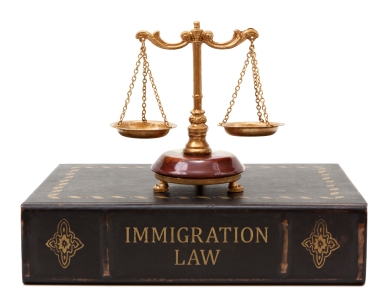
Facing deportation is one of the most stressful experiences an individual can encounter. The threat of removal from a country, uncertainty about the future, and the potential separation from family make deportation defense cases particularly challenging. Navigating these cases without professional help can be overwhelming due to the complex immigration laws, procedures, and strict deadlines involved. This is where an experienced immigration attorney becomes invaluable. Immigration attorneys proficient in representing clients in removal proceedings, helping them understand their legal options, and building a strong defense to protect their rights and secure the possible outcome. If you need legal guidance, an experienced immigration attorney in Austin Texas can help navigate complex visa, green card, and deportation cases with confidence.
Understanding Deportation and Removal Proceedings
Before an immigration attorney can effectively handle a deportation defense case, it is crucial to understand what deportation entails. Deportation, also known as removal, is the legal process through which the government seeks to expel a non-citizen from the country for violating immigration laws. Common grounds for deportation include overstaying a visa, entering the country illegally, committing certain criminal offenses, or violating the terms of lawful residence. Removal proceedings take place in immigration court and involve strict procedures, evidentiary rules, and deadlines. An immigration attorney guides clients through these proceedings, ensuring they understand the charges, potential consequences, and available relief options.
Case Evaluation and Legal Strategy
When an individual first contacts an immigration attorney for deportation defense, the attorney conducts a thorough case evaluation. This involves reviewing the client’s immigration history, criminal record, family ties, and any prior interactions with immigration authorities. The attorney assesses whether the client may qualify for forms of relief such as cancellation of removal, asylum, withholding of removal, or adjustment of status. Developing a strong legal strategy is critical in deportation defense cases. The attorney considers the client’s personal circumstances, potential vulnerabilities, and the specific laws that apply. This strategic approach ensures that every action taken is calculated to strengthen the client’s position and maximize the chances of success in court.

Preparing Legal Documentation and Evidence
A key aspect of deportation defense is preparing and submitting proper legal documentation. Immigration attorneys meticulously gather evidence to support the client’s case, which may include identity documents, proof of lawful residence, employment records, educational history, medical records, and affidavits from family or community members. In cases involving criminal charges, attorneys may obtain court records, character references, and proficient testimonies to mitigate negative outcomes. Proper documentation is vital because the immigration judge relies heavily on evidence to determine whether the client qualifies for relief. An experienced attorney ensures that all paperwork is accurate, complete, and submitted within required deadlines, reducing the risk of case dismissal or adverse rulings.
Representation in Immigration Court
One of the most critical roles of an immigration attorney is representing clients in court hearings. Deportation proceedings can be intimidating, with strict procedural rules and complex legal arguments. Attorneys advocate for their clients by presenting legal arguments, cross-examining witnesses, and challenging government evidence when necessary. They also ensure that the client understands the court process, their rights, and what to expect during hearings. Effective representation in immigration court can significantly influence the outcome of a deportation case. A skilled attorney can negotiate with government attorneys, request continuances, or propose alternative forms of relief, all of which enhance the client’s chances of remaining in the country legally.
Filing Appeals and Motions
Even after an initial ruling, deportation cases may not be over. If a client receives an unfavorable decision, an immigration attorney can file appeals or motions to reopen the case. Appeals involve requesting a higher court or board to review the lower court’s decision, often citing legal errors, misinterpretation of the law, or overlooked evidence. Motions to reopen may introduce new evidence or changed circumstances that could alter the outcome. These processes are highly technical, requiring precise legal knowledge and adherence to strict timelines. Attorneys ensure that appeals and motions are prepared thoroughly and filed correctly to preserve the client’s rights and maintain options for relief.
Exploring Forms of Relief
A critical part of deportation defense involves identifying forms of relief available to the client. Immigration attorneys explore various avenues depending on the client’s circumstances, such as asylum for individuals fearing persecution in their home country, cancellation of removal for long-term residents with strong community ties, adjustment of status for eligible immigrants, or relief under the Violence Against Women Act (VAWA) for defendants of abuse. Attorneys assess eligibility for each option, prepare compelling petitions, and present the case to the court or immigration authorities. By leveraging these legal avenues, attorneys increase the likelihood of a favorable outcome and help clients secure stability and safety.
Communicating and Advising Clients
Throughout deportation defense proceedings, effective communication between the attorney and client is essential. Immigration attorneys provide clear explanations of complex legal concepts, potential risks, and likely outcomes. They advise clients on how to behave during court appearances, how to handle government inquiries, and what evidence to collect. Attorneys also provide emotional support, helping clients manage stress and uncertainty during this challenging period. By maintaining open communication and transparency, attorneys empower clients to make informed decisions about their defense and future in the country.
Collaborating with Proficient
In complex deportation defense cases, immigration attorneys often collaborate with professional such as forensic analysts, medical professionals, or psychologists. For instance, medical or psychological evaluations may be necessary to demonstrate hardship or establish eligibility for certain forms of relief. Proficient testimony can strengthen arguments in cases involving criminal convictions, health issues, or persecution claims. By integrating proficient knowledge into the legal strategy, attorneys provide comprehensive representation that addresses all facets of a client’s case.
Staying Updated on Immigration Laws
Immigration law is constantly evolving, and deportation defense cases require attorneys to stay informed about the latest regulations, court rulings, and policy changes. Knowledge of current immigration policies, executive orders, and precedent cases allows attorneys to adapt strategies and identify opportunities for relief that may not have existed previously. This guidance ensures that clients receive informed guidance and that their defense aligns with current legal standards.
Conclusion
Handling deportation defense cases requires a combination of legal guidance, strategic planning, and compassionate advocacy. Immigration attorneys play a crucial role in guiding clients through complex proceedings, gathering evidence, representing them in court, filing appeals, and exploring all available forms of relief. By providing professional representation, attorneys not only protect the legal rights of individuals facing removal but also help preserve families, livelihoods, and communities. For anyone confronting the threat of deportation, engaging a skilled immigration attorney is essential for navigating the challenges of the legal system and increasing the likelihood of a positive outcome.




